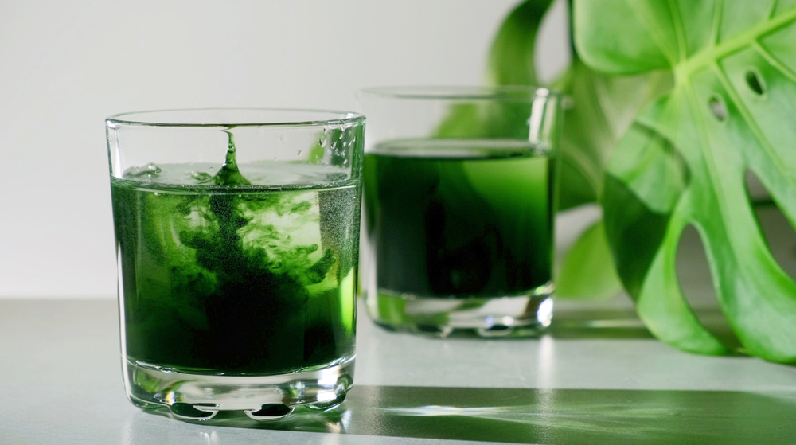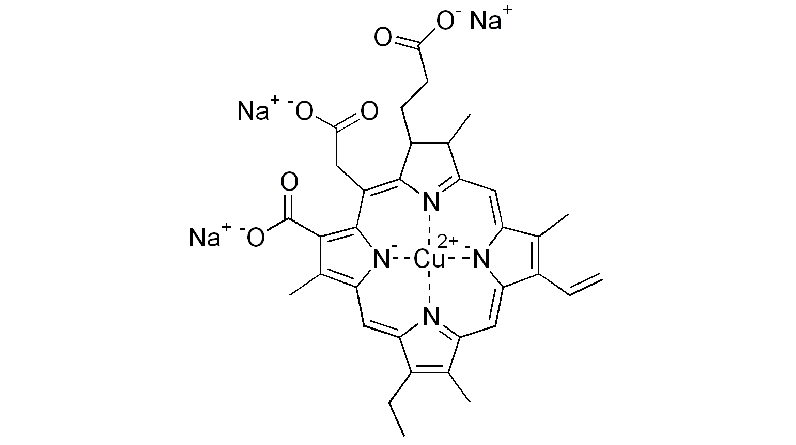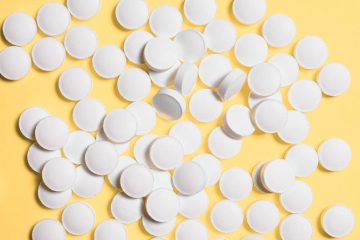Is It Safe to Drink Liquid Chlorophyll

A lot of people on TikTok are trying new diets, and as a registered dietitian, I get asked about everything from apple cider vinegar (never take straight, undiluted shots) to “what I eat in a day” videos (many of which feature menus that aren’t balanced or nutritionally adequate). The most popular form of chlorophyll is a liquid that can be dispensed with a dropper, but tablets and capsules are also available. Fans of the liquid chlorophyll supplement may be seen blending it with water. Chlorophyll, it is claimed, can do anything from increase energy to decrease redness in the skin to cleanse the body. The following information may help you decide whether or not to join the liquid chlorophyll craze. Can we take liquid chlorophyll without getting sick? Green juice savouring young woman at her kitchen table.
Chlorophyll: What Is It?
Chlorophyll is a chemical found in plants that gives them their characteristic green colour when it is in its natural state.
Chlorophyll is most commonly associated with green plants, but it can also be found in:
- Food for plants and a few beauty products
- Healthy Vitamins and Minerals
- Chlorophyll is responsible for the green colour of plants.
The most common pigment in plants, including those we eat, is chlorophyll, as you may recall from your science classes. Chlorophyll is found abundantly in nature, particularly in green vegetables like spinach and green beans. One serving of raw spinach contains 23.7 mcg of chlorophyll, while green beans contain 8.3 mcg per serving. Consequently, consuming a diet rich in green vegetables is an excellent way to increase one’s chlorophyll intake.
Chlorophyllin is Used to Create Supplements

Some supplements, typically liquids, also contain chlorophyll. OTC chlorophyll supplements typically contain chlorophyllin rather than natural chlorophyll due to the latter’s greater stability.
The semisynthetic derivative of chlorophyll is called chlorophyllin. Supplements containing chlorophyllin have shown some promise as antioxidants and cancer protectors.
Only about one in ten grownups get the minimum daily intake of vegetables (2-3 cups). Getting enough chlorophyll requires consuming at least three cups per day (though I usually advise five cups) of a green variety.
Chlorophyll is found in vegetables, which also provide a plethora of other nutrients. So, the best way to obtain this pigment is through dietary means, and specifically through the consumption of more green plant foods. This eliminates the need for any additional supplements.
Scientific Inquiry Into Chlorophyll Juice
Unfortunately, there is a lack of up-to-date information about chlorophyll and its uses. Many of the available studies were conducted on animals rather than humans. However, few researchers have looked into chlorophyll’s effects on humans.
See Also: The rising cost of educating boys is a problem that disproportionately affects them.
The benefits of supplements are largely unsupported by research.
Chlorophyllin is not only a vital part of dietary supplements, but also a useful food, drug, and beauty product colouring agent. Chlorophyllin-containing supplements have not been extensively studied for their benefits as of November 2022. There may be a number of advantages to taking the supplement in liquid form.
- Improving RBC Count
- aiding in weight reduction
- Limiting the Spread of Cancer
More evidence is needed to support those assertions. Even so, there is preliminary evidence concerning chlorophyll’s efficacy as a topical cream ingredient. Chlorophyllin has been tried topically as a treatment for a variety of skin disorders. Combining phototherapy with a chlorophyllin-containing topical cream has shown promise as an acne treatment. Acne cleared up in the study participants in as little as four weeks.
Other studies have shown that a chlorophyllin-based topical cream can reduce the appearance of fine lines and uneven pigmentation in sun-damaged skin. No One Knows the Optimal Dose or the Consequences of Taking It
Because of this, we don’t know how effective supplements are, how much of them to take, or if there are any negative side effects or interactions.
Chlorophyllin does not seem to have any unintended consequences. Among the list of possible minor side effects is:
- Sensitivity to sunlight has increased (and therefore increased sunburn risk)
- Watery stools
- Discharge or faeces that is green in colour
Chlorophyll’s safety during pregnancy has not been established; therefore, expectant mothers may want to avoid chlorophyllin supplements. There have been no reported side effects from taking chlorophyll, but more study is needed to fully understand the compound.
However, while some nutrients may be helpful in one setting or dosage, they may become risky when consumed in large quantities. Zinc, for instance, is a helpful mineral for the immune system. Zinc is essential for health, but too much of it can cause stomach problems, weaken the immune system, and lower HDL (“good”) cholesterol levels in the blood.
In addition, the amounts of antioxidants found in fruits and vegetables have protective benefits. However, antioxidant supplements may actually increase oxidative stress in the body. Concise Tips
I don’t have anything against supplements. However, I approach liquid chlorophyll with caution due to the fact that there is still so much we don’t know about it.
There is no established ideal dose or length of use, and the supplement may not be safe for pregnant women to take. Also unknown are any possible drug interactions with other medications, including those available over the counter, vitamins, and herbs. Also, women who are pregnant or nursing should not use it unless their doctor gives the green light.
The Short Version
If you’ve been taking liquid chlorophyll and are feeling better, it’s a good idea to discuss the benefits and risks with your doctor so that you can make an informed decision based on your unique situation. Furthermore, if you want to reap the benefits supported by more research, eating more fresh vegetables is preferable to taking a supplement.
Leave a reply
You must be logged in to post a comment.






